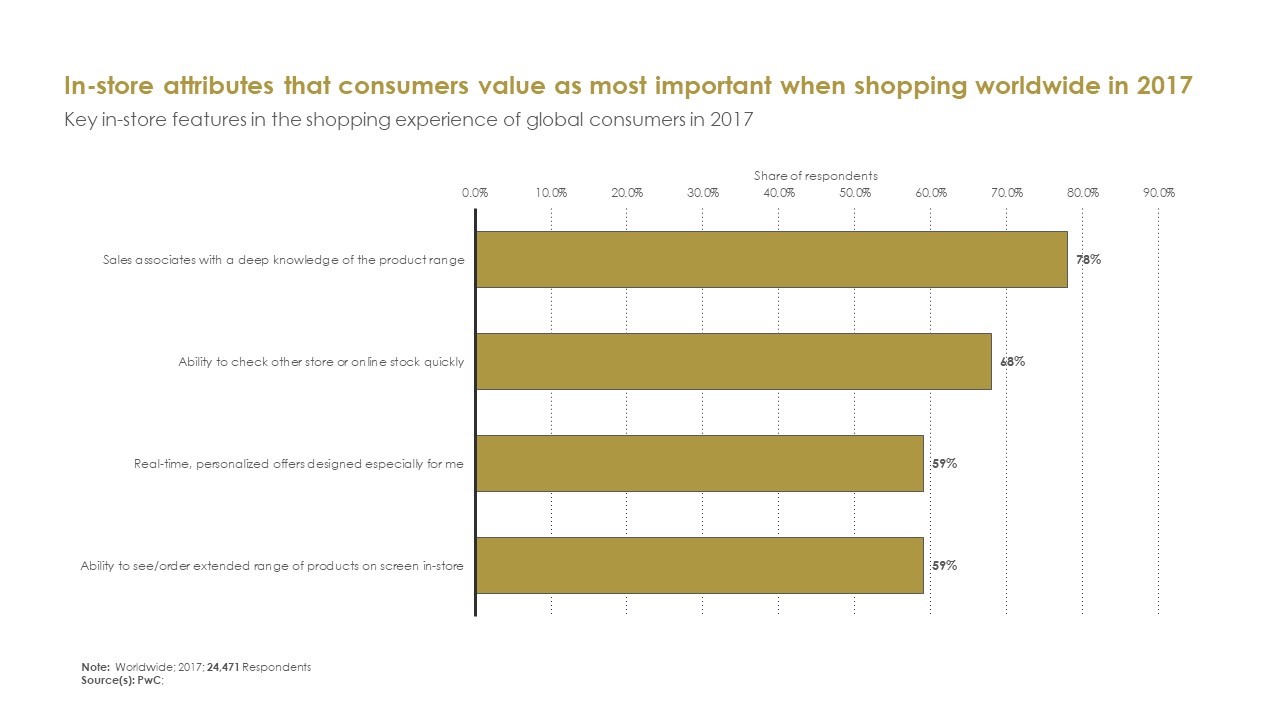Quality requires a liturgy of appreciation. Any liturgy has priests and priestesses.
Not long ago, one could generally step into normal stores (as in not-luxury) where discerning experts moved across walls and walls of merchandise proudly sharing an encyclopedic product knowledge with their patrons.
 Makers would effortlessly tell stories about the genesis of the product, weaving engaging narratives about the people and traditions behind it.
Makers would effortlessly tell stories about the genesis of the product, weaving engaging narratives about the people and traditions behind it.One would sit at a restaurant where the server would have tasted the food in the menu and would, therefore, be able to authentically describe each dish to you first hand.
It is becoming difficult to experience this level of service today. But it is exactly this type of service experience that draws customers back into stores. In fact, according to a 2017 PWC survey of more than 24,000 customers worldwide, 78% of respondents patronize physical stores because of the ‘sales personnel deep knowledge’ of their merchandise.
That knowledge transfer is important, and it requires skilled and well-trained personnel.
At the same time, staff turnover in the service and retail industries is high, as employees look for better income and professional growth. It’s hard and expensive to keep training new employees, and as anybody who works in the business knows, training is one of the “costs” more likely to be cut first in a restructuring exercise.
Add to this scenario, when age diversity diminishes in the organization due to the retirement or dismissal of older more seasoned professionals, then younger talents don’t even benefit from working alongside more experienced mentors.
With no doubt, all of this has an impact on the likeability of an establishment or a brand.
Front personnel, whether in sales, service or customer service, is purveyor of a brand and organization culture and value. They are part of the real-world experience customers choose.
If sales crews are not happy or feel they have inadequate information, customers will notice.
It seems reasonable to consider the possibility of investing more in people. In training, in benefits.
These efforts tend to result in more enthusiastic and engaging service to clients, bettering performance stability and ultimately, sales.
Look at JOHN LEWIS partnership scheme that not only provides training and development from apprenticeship to career development but allows employees co-ownership and voice in business decision. HILTON that, in addition to usual perks, collaborates with THRIVE GLOBAL to offer spiritual and emotional support, as well as the possibility to take a sabbatical year to give back to the community or develop a dream project. MERCADO LIBRE, an Argentinian e-commerce platform active in almost South American countries, actively invests in people development, as well as programs and support for new parents.
As Richard Branson once famously said "Train people well enough so they can leave, treat them well enough so they don't want to."
The future of a brand may depend from it.